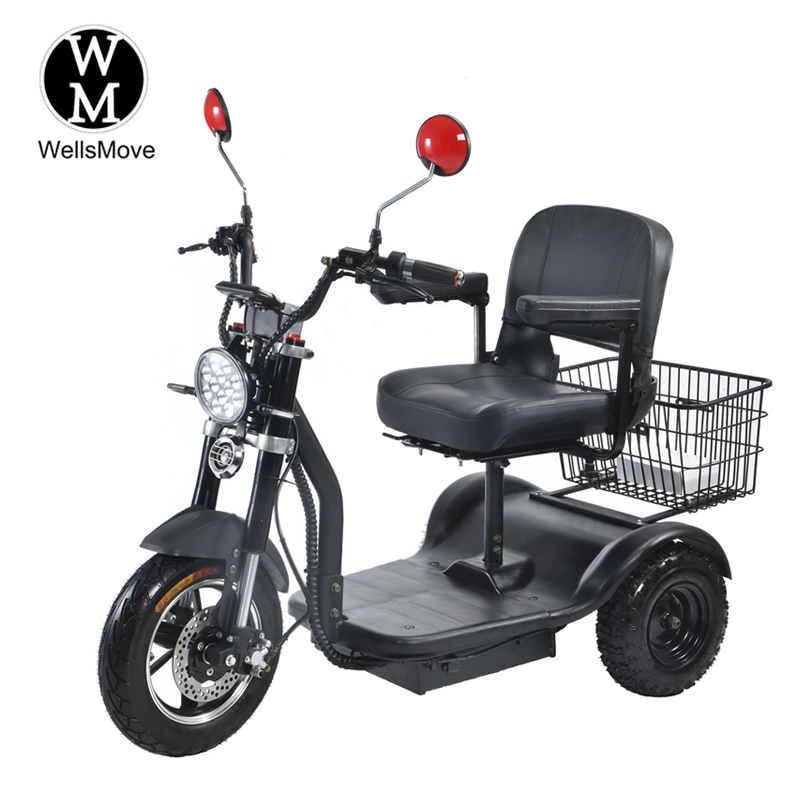Mobility scooters have become an important mode of transportation for individuals with limited mobility. These electric vehicles provide a convenient and efficient way for people to get around, whether running errands, visiting friends and family, or simply enjoying the great outdoors. A common question among e-scooter users is whether car batteries can be used to power their devices. In this article, we’ll explore the compatibility of car batteries with electric scooters and the potential advantages and disadvantages of using them.
First, it’s important to understand the basic components of an electric scooter and how they differ from a car. Mobility scooters are usually powered by rechargeable batteries that are specifically designed for use in electric vehicles. These batteries are typically sealed lead-acid (SLA) or lithium-ion batteries, chosen for their ability to provide the necessary power while being lightweight and compact enough to fit within the frame of the scooter.
Car batteries, on the other hand, are designed for a different purpose. They are primarily used to start a car’s engine and power its electrical system. Car batteries are larger and heavier than those used in mobility scooters, and they are not optimized for the continuous discharge and charge cycles typical of electric vehicle batteries.
While it is technically possible to connect a car battery to a mobility scooter, it is not recommended for a number of reasons. First, car batteries are not designed to provide the sustained power output required to operate a mobility scooter. This may result in reduced performance and shorter battery life. Additionally, the physical size and weight of a car battery may make it impractical for use in an electric scooter, as it may affect the balance and maneuverability of the scooter.
Additionally, using car batteries in e-scooters may pose safety risks. Mobility scooters are designed and tested with specific battery configurations to ensure they operate safely. Using non-standard batteries, such as car batteries, can cause electrical problems and even cause fires. When using any mobility aid, it is important to prioritize safety, and using the recommended battery type is a key aspect of this.
People should focus on choosing the right battery for their mobility scooter rather than using a car battery. Manufacturers will provide specific recommendations for compatible batteries, taking into account factors such as voltage, capacity, and size. By following these guidelines, users can ensure optimal performance and safety from their mobility scooters.
In addition to using the right type of battery, there are other steps users can take to maximize the efficiency and longevity of their electric scooter power source. Regular maintenance, such as keeping your battery charged and clean, can help extend its lifespan. It’s also important to store the scooter and its battery in a suitable environment, avoiding extreme temperatures and humidity that can reduce battery performance.
For individuals concerned about the range and durability of their mobility scooters, there are other solutions to consider. Some scooters are designed to accommodate larger or higher capacity batteries, which can extend their charging range. Additionally, advances in battery technology continue to increase the energy density and efficiency of electric vehicle batteries, providing the potential for longer-lasting, more powerful options in the future.
Ultimately, while the idea of using car batteries in electric scooters seems like a practical solution, it’s not advisable due to potential risks and drawbacks. Instead, individuals should prioritize safety and performance and use the recommended battery type for their specific mobility scooter model. By doing this, they can ensure a reliable and enjoyable experience when using a mobility scooter for daily activities and outings.
In summary, car batteries are not recommended to be compatible with electric scooters due to various technical, safety and performance-related issues. Users must follow the manufacturer’s guidelines and choose the appropriate battery for their e-scooter to ensure optimal functionality and safety. By understanding the specific requirements for a scooter power source and following best practices for battery maintenance, individuals can get the most out of their scooter and enjoy greater independence and mobility in their daily lives.
Post time: Jul-22-2024



